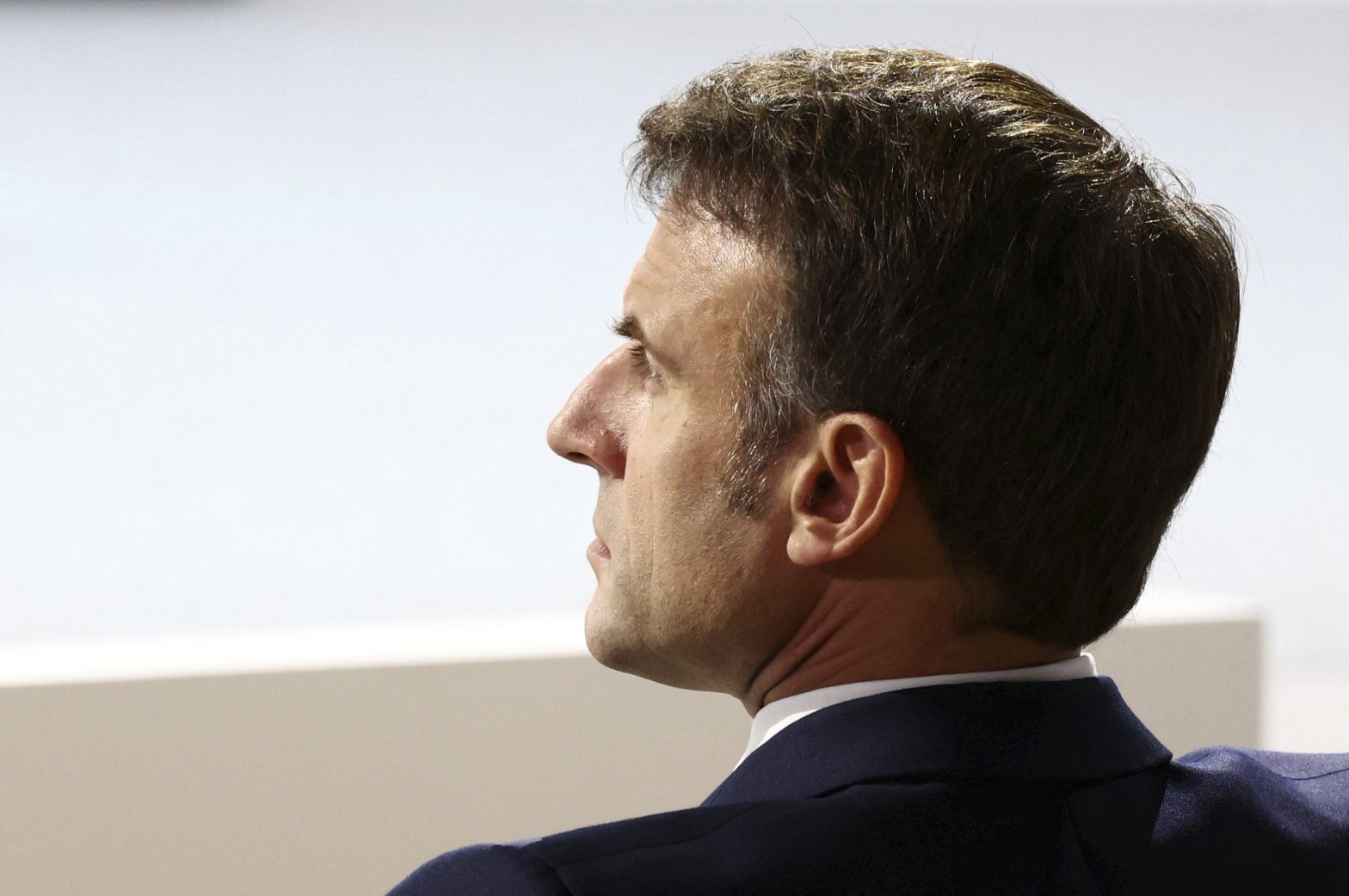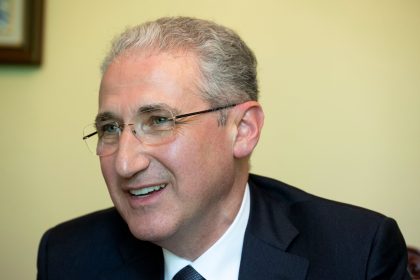France’s Macron Says Melting Glaciers ‘Unprecedented Challenge for Humanity’

PARIS (AP) — Melting glaciers are an “unprecedented challenge for humanity,” French President Emmanuel Macron said on Friday, as he launched a call for nations to work together on slashing planet-warming emissions, protecting the environment and collaborating on scientific research into the Earth’s icy ecosystems.
Such a united effort is desperately needed, even though the war in Ukraine and the latest Israel-Hamas war are taking away much of the international focus and hamper global unity and cooperation, Macron said.
The French leader spoke at the Paris Peace Forum, an annual event involving governments, nongovernmental groups and others seeking dialogue around global problems such as climate change, children’s exposure to online violence, and threats to human rights.
The world, Macron said, is witnessing “the collapse of the cryosphere under the impact of climate change,” referring to parts of the Earth where water is in solid form, including glaciers.
“The most immediate and visible effect is the melting of the ice caps … it represents an unprecedented challenge for humanity,” Macron said.
Melting ice surfaces worldwide have an impact on biodiversity, rising sea levels and coastlines and they contribute to scarcity of drinking water, migration, greater release of CO2 and the risk of a new pandemic, he added.
“All these threats are real,” Macron said and called for urgent cooperation.
“Conflicts are once again on the agenda, in the Middle East and elsewhere and this makes our relations fragile, but we have to do our best to work closely together, in a peaceful way,” he added.
Heads of states, governments and diplomats from about 40 states attended the summit in Paris, including China. Russia was not invited, even though its territory includes part of the Arctic.
States issued a call to action to address human-caused climate change and biodiversity loss caused by melting ecosystems. Summit participants also launched a high-level group that will focus on the impact the melt will have on coastal towns facing rising sea levels and dwindling water resources in mountainous regions.
Ruth Mottram, a climate scientist at the Danish Meteorological Institute, welcomed the call for scientific collaboration in the polar regions, but said Russia’s war on Ukraine has disrupted that.
“It is hard to see that any normalization of relations will happen (or even be desirable) until the war is over,” Mottram said in an e-mail.
She added that the loss of glaciers and ice sheets would have “impacts on vulnerable populations very far from the polar regions” such as through sea level rise, which showed “how important it is to understand the earth system as a whole.”
Ahead of Macron’s comments, Miriam Jackson, a climate scientist with the Kathmandu-based International Centre for Integrated Mountain Development, called for politicians “to listen to the scientists and people and implement the necessary changes.”
She said the impact of melting glaciers are felt by billions in the form of rising sea levels, floods and unpredictable river flows.
“There is a huge human component to this rapid warming of our earth and it is our responsibility to slow down and reverse these changes, if possible,” Jackson said.
In mountains from the Alps to the Himalayas, glaciers are disappearing at alarming rates due to warming temperatures, with many predicted to disappear entirely by the end of the century, according to studies.
While human-caused climate change means the loss of glacier mass is irreversible in the short term, scientists say drastically reducing the burning of planet-warming coal, oil and gas could minimize the melt in the future.
It’s a similarly stark picture on the Earth’s poles. The Arctic is rapidly losing sea ice as global warming causes the ice to weaken and disappear. The frozen Antarctic has also seen dramatic ice sheet melt, disappearing glaciers and unusually high temperatures as the world heats up.

























